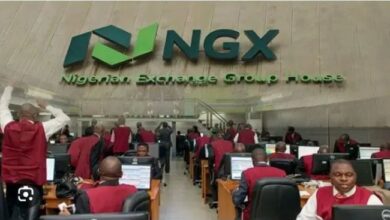ECOWAS Applauds Nigeria Customs for Homegrown ‘B’Odogwu’ Trade Platform
The Economic Community of West African States (ECOWAS) has lauded the Nigeria Customs Service (NCS) for the development and successful deployment of the B’Odogwu Unified Customs Management System (UCMS)—a locally-developed innovation aimed at streamlining trade processes and enhancing revenue collection.
The commendation came from ECOWAS’s Regional Trade Facilitation Committee (RTFC) during a working visit on Tuesday to the Port and Terminal Multiservices Ltd. (PTML) Customs Command in Lagos, which served as the pilot site for the B’Odogwu platform.
Leading the ECOWAS delegation, Mr. Kolawole Sofola, Director of Trade, commended the Comptroller-General of Customs, Bashir Adeniyi, for steering the initiative. He also praised Comptroller Tenny Daniyan, PTML Area Controller, for the command’s operational strides in revenue generation and streamlined cargo processing since the implementation of the system.
Sofola noted that the NCS is making notable progress through the application of modern technological tools, particularly in trade facilitation and the suppression of smuggling, both of which are essential to fostering economic growth across the subregion.
“On behalf of the ECOWAS Commission President and the Commissioner for Economic Affairs and Agriculture, I commend Comptroller Daniyan and his team for their remarkable efforts,” said Sofola. “The work here exemplifies how Nigeria continues to evolve by embracing indigenous digital innovations like B’Odogwu, which is clearly yielding results.”
A Model for Regional Replication
The ECOWAS RTFC, comprising representatives from member states, visited the PTML command to better understand Nigeria’s customs modernization efforts and assess opportunities for regional knowledge exchange.
Sofola emphasized that the transition from previous customs systems to B’Odogwu demonstrates Nigeria’s ability to develop indigenous solutions that align with international trade standards, positioning the country as a regional leader in trade digitalization.
B’Odogwu in Action: Revenue, Speed, and Scalability
Briefing the ECOWAS team, Comptroller Daniyan revealed that since the B’Odogwu platform went live at PTML in November 2024, the command has generated over ₦230 billion in revenue.
He disclosed that the success of the pilot led to the system’s nationwide rollout across 34 customs commands, reinforcing its strategic importance. According to Daniyan, the B’Odogwu platform is distinctive because it was developed internally by NCS officers, in collaboration with the Trade Modernisation Project (TMP)—an unprecedented feat in Nigerian customs history.
“We now operate two-hour cargo clearance windows,” Daniyan stated. “And as compliance improves, especially at the RoRo terminal, clearance time continues to drop further.”
The area controller also credited the progress to the sustained training and sensitization programs initiated by the CGC, which engage not only customs officers but also key stakeholders including terminal operators and financial institutions.
Built by Nigerians, for Nigerian Trade
Replacing the former NICIS II system, the B’Odogwu UCMS was designed to address long-standing inefficiencies in port logistics. Despite initial technological challenges, the platform has proven resilient and adaptable.
“Every new innovation faces teething problems, but the strength of B’Odogwu lies in its homegrown foundation,” Daniyan noted. “It reflects the visionary drive of our CGC, whose passion for innovation has inspired every facet of this transformation.”
Performance Benchmarks and Strategic Alignment
Delivering a technical presentation on the platform’s journey, Assistant Comptroller Oyindamola Oladepo, Project Manager for B’Odogwu, highlighted the remarkable performance metrics achieved.
He disclosed that the platform once generated ₦5.6 billion in a single day, and has enabled average port clearance times of under six hours—a significant improvement that aligns directly with the Comptroller-General’s core reform pillars: consolidation, collaboration, and innovation.
Oladepo emphasized that B’Odogwu is not merely a digital tool, but a foundational element in the CGC’s broader strategy to reposition NCS as a catalyst for economic growth and regional integration.
Looking Ahead
As ECOWAS member states continue seeking ways to harmonize trade procedures across the West African region, Nigeria’s B’Odogwu platform may well serve as a blueprint for homegrown innovation that meets global standards.
The RTFC visit marks a step toward broader adoption of indigenous trade technologies—anchored not only in automation, but in customs sovereignty, institutional capacity building, and stakeholder inclusion.













